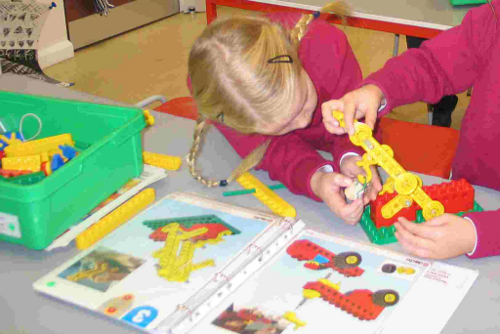Taking STEPS to an economy in STEM is the way forward
I was pleased recently, to be asked to speak at a recent showcase of projects from the STEPS programme, held in the Long Gallery in Parliament Buildings.
What a brilliant exhibition of young people’s achievement in Science, Technology, Engineering and Maths or STEM, as we have come to call it. We should be very grateful to Martin Brown and his team.
STEPS (STEM Experts in Primary Schools) is a programme to help schools develop pupils’ awareness and understanding of the uses of science and technology to add enrichment to their curriculum, The World Around Us.
Basil McCrea and Naomi Long spoke on the joy and excitement of science and engineering.
My job was to offer the perspective of the NI Science Park – and that is to see through the pure science to the markets it may serve and the living it may yield to our young people.
So let me tell you what I saw in the room. Children, teachers and experts had, in collaboration, successfully completed projects in the fields of renewable energy, structures and materials, space, communications, bioscience and the environment. Every one of which is a growing world market! I recommended that my young audience watch the Tomorrow’s World edition of Horizon – as I do my readers – as it clearly presents (well done BBC) the joys and the challenges that we all face. Today, more science is done in 24 hours than in a year or more when we launched Titanic, so more countries than ever are investing big bucks in science programmes.
Director of Research at Cambridge University David King reminded us, when he spoke at Queen’s University Belfast a few weeks ago, that within a decade Rwanda (the President of which he now advises) has grown its annual crop of graduates from 100 to 10,000 and is the first country in Africa to offer free education for all between the ages of 6 and 14!
But back to Stormont, where I was pleased to remind the pupils and their teachers that we have indigenous companies which are already trading globally in all those fields. Check them out at www.thehereandnowni.com,
New carbon-based materials are used to build Buses in Ballymena, Lotus sports cars in Lisburn and Bombardier Planes in Belfast. In Larne, a company is designing zero carbon ships for coastal transport.
We make components that go into space – cameras to find planets and to understand the universe are made in West Belfast. In East Belfast, we design the ultra-high frequency communications chips for satellites and the ion engines that keep them flying in proper orbit.
In bioscience, we are working on cures for cancer, new materials to make bone, and other replacement parts to help those who need them. Nanotechnology in the North-West makes the hard discs for 25 per cent of the world’s computers. These companies are suffering the skills gap and while I can see no reason why each of the young people in the room that day shouldn’t fill that gap, I have to ask: can we wait that long?
STEM experts are people working in applications of science, technology, engineering and mathematics, who spend time, pro bono, in schools, acting as inspiring role models to young people.
STEPS is supported by the AstraZeneca Science Teaching Trust. Click on Funding & Projects, then Projects in your region, then Northern Ireland, to find out more.
The programme is also supported by the Institute of Physics, the Royal Society of Chemistry and, of course, by the employers of those experts who volunteer.
Source: newsletter.co.uk




